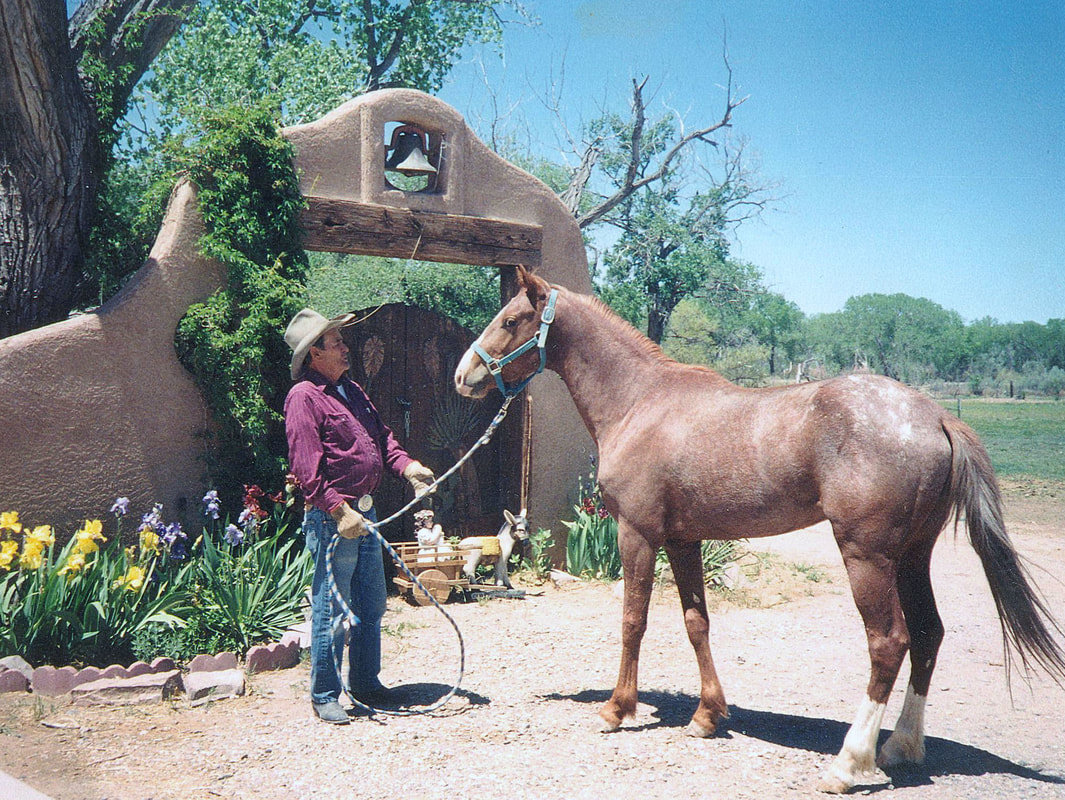Baca Barb Horse History
In the late 1800s, Doreteo “Joty” Baca’s grandparents journeyed north in a wagon from Mexico. They established the Baca Farm on land that was colonized, as a US Territory, by Spain. In 1912, this land became the state of New Mexico. Unbeknownst to the early Baca family, the horses they gathered were descendants of those who accompanied early Spanish explorers from Mexico, traveling along the Rio Grande River. The Baca family became one of the longest, influential preservationist of the original Spanish horse that arrived with Cortez and his explorers.
Upon returning from the Korean War, Joty witnessed the slaughter of whole herds of Spanish Horses – America’s first horse. With his war torn heart, Joty experienced firsthand the therapeutic capability of these horses on his family’s farm. As they aided him in his healing, he began to assemble his first herd. Joty recognized the importance of keeping these blood lines pure and bred for their temperament, conformation, smaller stature and endurance. He was very particular about choosing horses from the mountains near Tijeres, New Mexico, from neighboring ranches, and from Native American tribes in the region. He chose closed herds to ensure that the bloodline of the original Spanish horse was preserved. In 2005 the State of New Mexico publicly recognized Joty and his wife, Virginia, for their persistence, dedication and great sacrifice for the preservation and recognition of the Colonial Spanish Horse.
In 2013, at the end of Joty’s life, the last of his herd was dispersed from Baca Chica Farm. During his lifetime Joty had produced over 200 horses of exceptional quality and character. He knew these were the horses that his own ancestors from Spain had ridden to Inscription Rock at El Morro National Monument. He established a name for these horses from Baca Chica Farm and the Baca strain has been officially recognized by the Livestock Breed Conservancy. Renowned Spanish Horse authority from Virginia Tech, Dr. Phillip Sponenberg, The Horse of the America’s Registry and the Preservation Programs have all celebrated Joty Baca and his work.
In 2013, at the end of Joty’s life, the last of his herd was dispersed from Baca Chica Farm. During his lifetime Joty had produced over 200 horses of exceptional quality and character. He knew these were the horses that his own ancestors from Spain had ridden to Inscription Rock at El Morro National Monument. He established a name for these horses from Baca Chica Farm and the Baca strain has been officially recognized by the Livestock Breed Conservancy. Renowned Spanish Horse authority from Virginia Tech, Dr. Phillip Sponenberg, The Horse of the America’s Registry and the Preservation Programs have all celebrated Joty Baca and his work.
